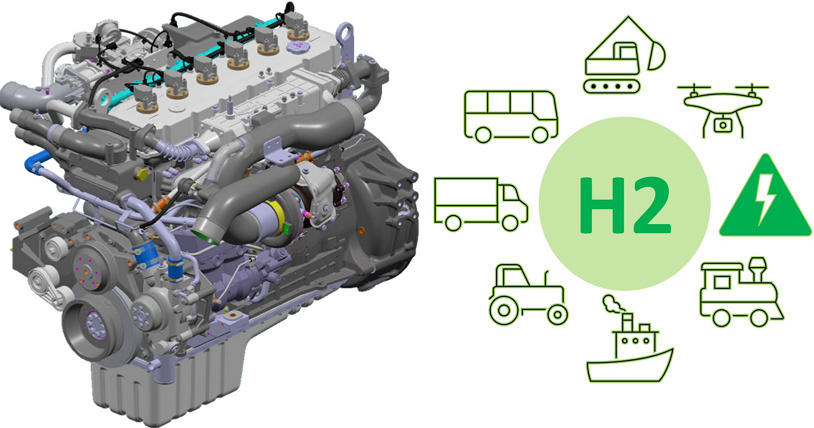
Selected as a national project lead agency, and aims to mass – produce hydrogen engines to be installed in mid- to large-sized commercial vehicles, buses, and construction machines by 2025 and carbon dioxide regulation scheduled to be implemented.
While Hyundai Heavy Industries Group is building a hydrogen value chain, Hyundai Doosan Infracore, a subsidiary of the construction equipment sector, has started developing a hydrogen-fired engine (hereinafter referred to as a hydrogen engine) for use in commercial vehicles, buses and construction machinery.
Hyundai Doosan Infracore announced that it was recently selected as the lead agency for the ‘Development of hydrogen engine systems and storage/supply systems for construction machinery/commercial vehicles’, a national project of the Industrial Technology Evaluation and Management Institute under the Ministry of Trade, Industry and Energy.
Through this project, Hyundai Doosan Infracore plans to develop a 300KW output, 11-liter-class hydrogen engine and a hydrogen tank system that can realize ‘zero carbon’. By 2024, commercial vehicles such as trucks and large buses and construction machinery such as excavators will be equipped with hydrogen engines and verified, with the goal of mass production in 2025.
The hydrogen engine is one of the three carbon-neutral *powertrains (electric battery, hydrogen fuel cell, and hydrogen engine) in the future to respond to global warming. method.
Since hydrogen engines can utilize existing engine technology and facilities, they have the advantage of reducing costs and advancing commercialization time. In addition, unlike fuel cells, which require the use of high-purity hydrogen of more than 99.99%, hydrogen engines are economical because they can be driven with low-purity hydrogen.
In particular, electric batteries have a low energy density compared to their capacity, which makes them suitable for passenger cars. Hydrogen fuel cells have high energy density, but they are expensive and require technical maturity such as securing durability in harsh environments. A hydrogen engine is considered the most suitable engine system for commercial vehicles.
Hyundai Doosan Infracore plans to dominate the related market by developing a hydrogen engine based on the technology it has accumulated in internal combustion engines such as construction heavy equipment, generators, and marine engines since it developed its own diesel engine for the first time in Korea in 1985. .
The market outlook for hydrogen engines is also bright. Demand for eco-friendly engines from commercial vehicle brands is increasing ahead of the enforcement of Euro 7, a stricter exhaust gas regulation and carbon neutrality regulation for carbon neutrality. is rushing to In addition, according to Market Statsville, a global market research institute, the hydrogen engine market is expected to grow at an average annual rate of 8.74% from 2022 to 2030.
An official from Hyundai Doosan Infracore said, “The hydrogen engine we started developing will be used for medium-to-large commercial vehicles such as construction machinery, trucks, and buses, as well as medium-to-large generators. We will do our best to preoccupy the market by developing hydrogen-related technology.”
Read the most up to date Fuel Cell and Hydrogen Industry news at FuelCellsWorks




